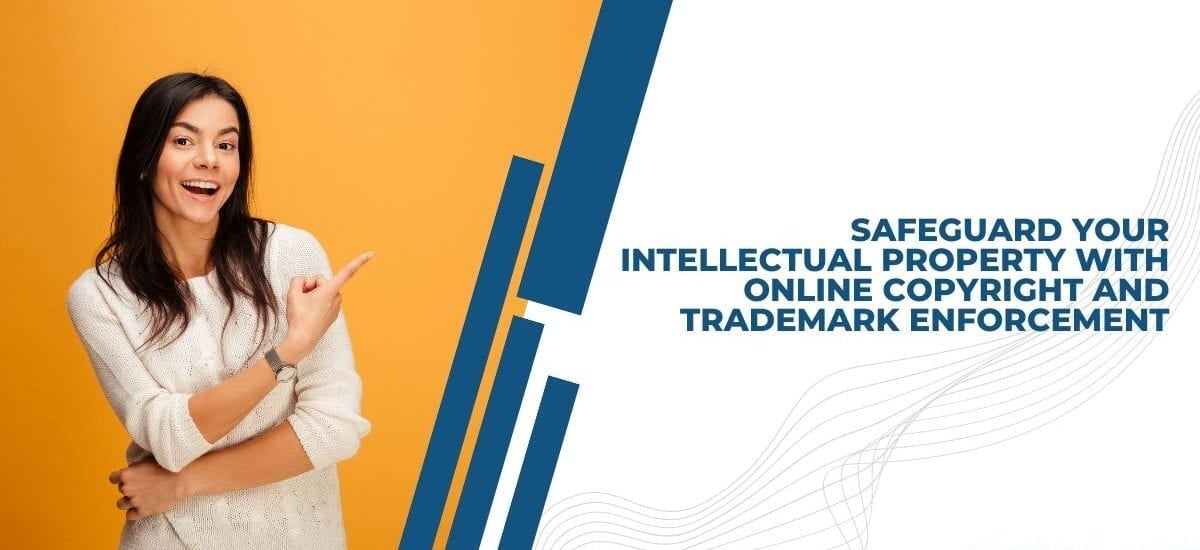
With the ever-growing ease of online purchasing, many small businesses may need to be aware of the legal implications of using someone else’s Intellectual Property without permission. If you are using someone else’s trademark or copyrighted material without their consent, there are certain penalties that you may face.
Copyright and trademarks are legal terms that represent the owner of an exclusive right to use a particular name, symbol, or design. When someone infringes upon these rights, they may be subject to legal consequences. The main cause of the widespread infringement of intellectual property on the internet is the ease with which proprietary and IP-protected items can be copied. Additionally, the anonymity of the internet does not dissuade users from utilizing the protected content without the owner’s consent.
The purpose of copyright law is to safeguard unique forms of expression. Copyright law protects original authorship, including artistic, literary, and musical works. Copyright also gives the right to reproduce and distribute these works. Logos and words are protected by trademark law, but common color schemes are not. With trademark protection, businesses can safeguard their unique trademarks from being misused by competitors. Restrictive and abusive trade practices are prohibited under the law of unfair competition or trade practices, while the law of trade secrets safeguards sensitive corporate data.
According to the National Intellectual Property Database, in 2016, businesses spent more than $52 billion on intellectual property protection. And this is only an estimate; the figure is certainly much higher as business spending on intellectual property protection increases yearly. One of the ways to protect your investment is by ensuring that you have effective online copyright and trademark enforcement.
How will Online Copyright and trademark enforcement help in identifying infringement?
IP law is complex, but the goal is always to protect the intellectual property of individuals, businesses, and even entire countries. When someone infringes your IP, you can take legal action to stop them from doing so. However, unlike traditional lawsuits where you go after someone physically, enforcing IP rights often requires more sophisticated methods.
That’s where online copyright and trademark enforcement comes in handy. Using technologies such as content scanning and infringement monitoring software, you can quickly identify instances of infringement and take action against the violators. This should be your first step when protecting your IP – don’t wait until somebody breaches your trademark or copyright.
On the internet, copyright protection gives original artists and authors the right to stop others from appropriating or copying their work and claiming it as their own. Copyright laws in the United States protect the author or creator of any original works. Any work that fits into the following categories is included in this: artistic, literary, musical, theatrical, architectural, and other intellectual works.
What are the measures to be taken care of as the creator?
As a business owner, individual creator, or webmaster, it is important to protect your intellectual property. This includes:
- registering copyrights and trademarks,
- maintaining online file ownership and security,
- enforcing online rights, and
- managing public appearances.
Fortunately, the task of safeguarding intellectual property can be greatly facilitated by utilizing an effective online copyright and trademark enforcement system. Because the internet has no physical borders and that illegal goods can be transmitted over them in a matter of seconds, the impact of loss on the internet is typically larger. Identifying intellectual property rights violations is a challenging undertaking both offline and online.
But with the aid of keyword searches, internet search engines could be able to simplify this procedure. When IPR violations are found, enforcing IPR may be difficult due to jurisdictional concerns, which could result in costly consequences.
IP rights can vary from country to country, so it is important to consult an attorney if you need clarification on your IP rights. Once you have identified any IP infringements, you should take immediate action to protect your intellectual property. This might include filing a complaint with the authorities, pursuing a cease-and-desist order, and filing a lawsuit.
Conclusion
If you are starting a business and are aware of the legal implications of IP infringement, it is important to take steps to safeguard your intellectual property. Vague or invalid claims about your product can lead to costly lawsuits. You can minimize potential conflicts and protect your hard work by consulting an attorney well in advance of any potential IP infringement.
As a business owner, you need to ensure that your intellectual property is protected online. Copyright and trademark infringement can lead to expensive litigation and lost profits. You can take several steps to safeguard your intellectual property, including using a digital security solution and keeping track of online activity.

